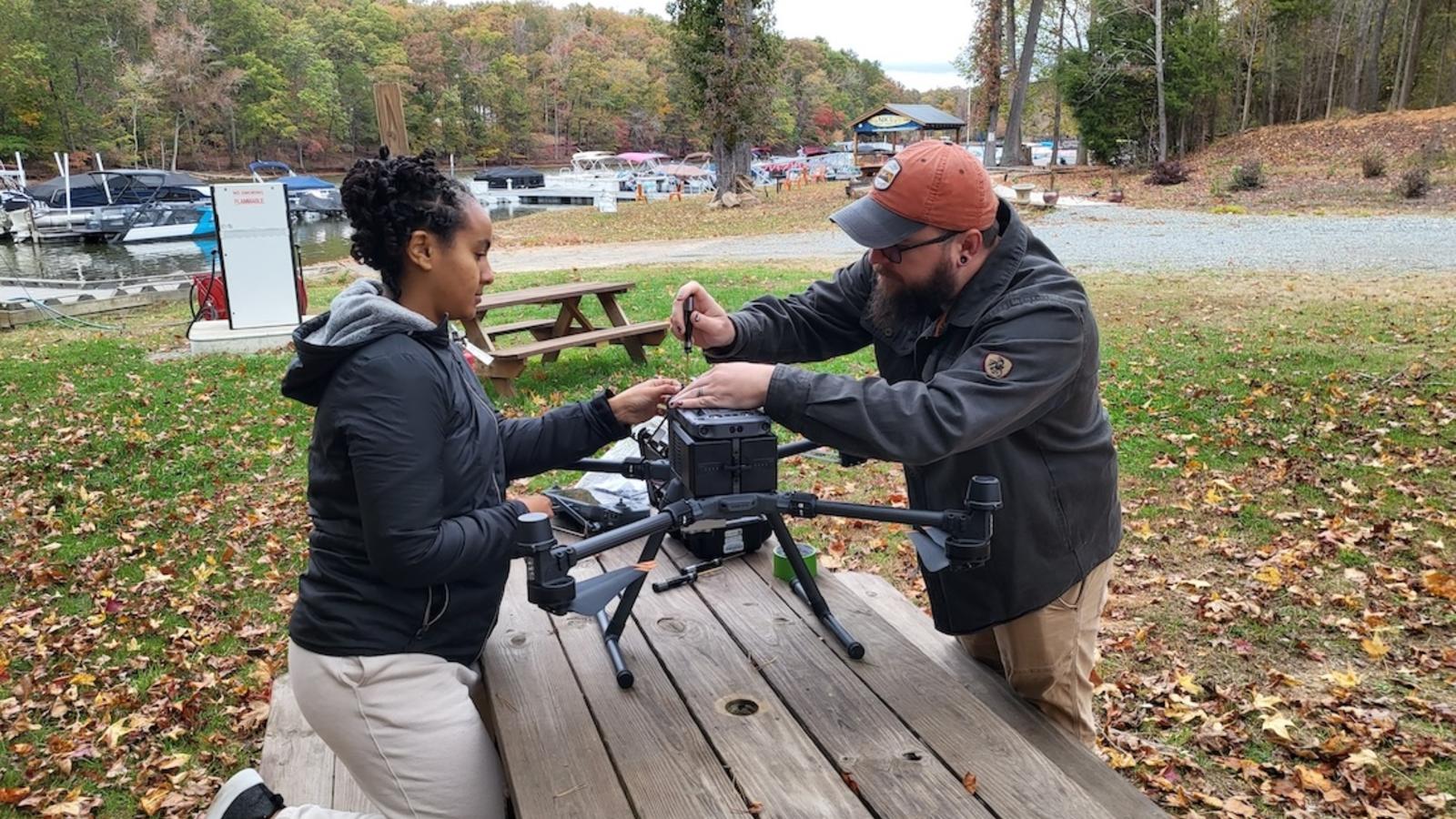Barron Allison, a senior majoring in environmental, earth and geospatial sciences, goes to the west side of campus once a month to record images of the parking lot behind the BRITE building.
“We’re looking at how active it is during the year,” Allison said. “How the parking lot is being used, how it might be effected by weather, where runoff might be.”
In past decades, such overhead images would require renting a helicopter or airplane or – even more expensive – booking satellite time. Today, it cost NCCU about $2,000 to buy an unmanned aerial vehicle, better known as a drone.
Drones are being used to conduct all types of research around the world that were formerly cost prohibitive. A professor at the University of California-Davis is using drones to detect wildfires in high-risk areas. A researcher at the University of Tokyo is using drones to determine the perfect day to pick a harvest of Brussel sprouts. Curtin University in Australia is using drones to locate meteors that have landed on earth.
At North Carolina Central University (NCCU), the Department of Environmental, Earth and Geospatial Sciences (DEEGS) has used drones to record images and capture elevation of a 20-acre portion of campus west of Fayetteville Street to help determine the impacts of runoff on this side of campus, said Professor Tim Mulrooney, Ph.D. A few years ago, EEGS partnered with the Department of History to capture drone photos of the former homes of prominent residents in the College Heights neighborhood of Durham. In the spring semester, the DEEGS plans to team up with the Department of Criminal Justice to teach crime scene analysis using a drone.
NCCU offers a course aimed at preparing students for the Federal Aviation Administration licensing test for drones, called a Part 107 remote pilot exam.
Besides flying and capturing images, with the appropriate attachments and software, drones can also measure wavelengths that the eye cannot see such as ultraviolet, infrared and microwave. “Two plants might look green but the one that gives off more infrared is healthier than the other one,” said Professor Rakesh Malhotra, Ph.D.
Once Allison has taken images, they can be converted to 3D models that can show the topography. “It’s almost like you are walking through an area,” Allison said.
There are minor challenges. Battery life on the drone Allison is using is fairly short, requiring him to alternate four batteries. Lighting is occasionally an issue. “If it’s not sunny, the photos might not be clear enough to do anything with,” he said.
Overall, however, Allison finds it a fairly simple process.
“Flying a drone is pretty easy,” Allison said. “It’s like a video game.”
Theo Noussi, Ph.D., an assistant professor at EEGS, said that drones are an effective and safer way to look for fallen power lines or view the consequences of an earthquake.
“Drones are very good at dull jobs, dirty jobs or dangerous jobs,” Noussi said.
Malhotra agrees.
“For a wildfire, it can give you the scope of what is really happening,” he said.
Michael Berryann, a student of Malhotra’s who is scheduled to graduate in December, is using a drone to monitor the water at High Rock Lake in Randleman, North Carolina, for chlorophyll levels. The drone photographs are then processed to into a single image.
“It basically takes an image of 200 to 300 square feet of water,” Berryann said. The process is straightforward although Berryann says that he does have to watch for birds.
“Certain birds in the area are territorial and may try to attack the drone,” he said.
